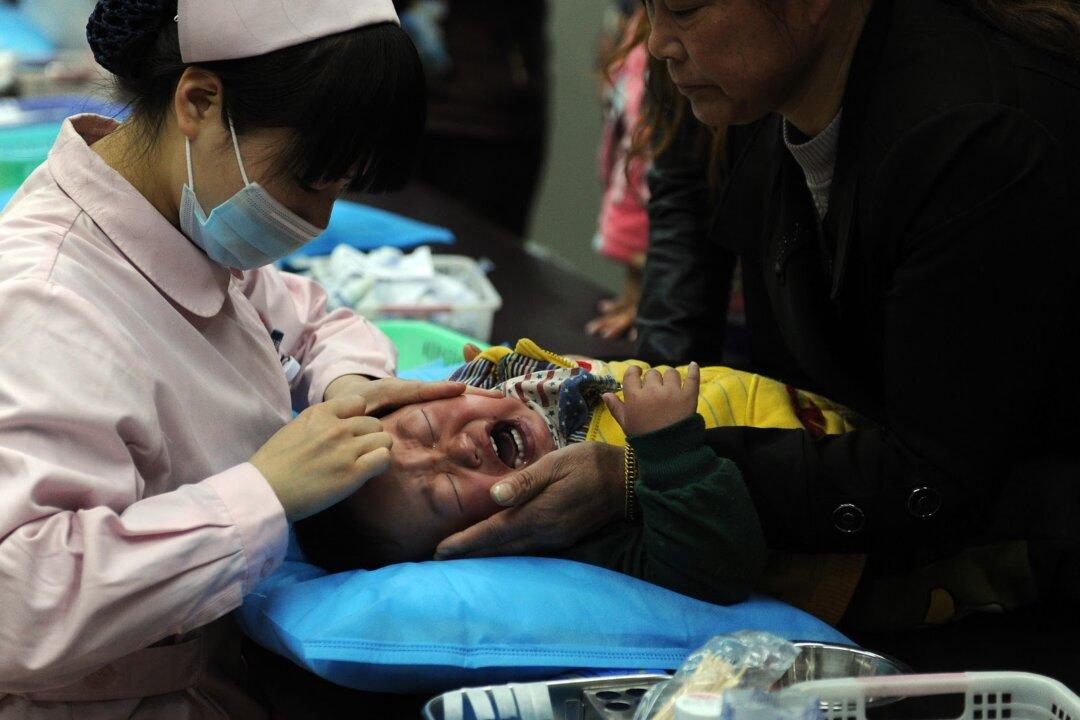Mirroring the melamine-tainted milk power scandal of 2008 that led to a worldwide business of supplying foreign-produced powder to Chinese mothers, the recently-revealed scandal involving millions of tainted vaccines has spurred Chinese to again look beyond their borders for alternatives.
But with crowds of Chinese parents eyeing Hong Kong as a good place to vaccinate their children, hospitals there have anticipated the coming storm and are taking solid measures to control admissions.
Effective April 1, Maternal and Child Health Centers in Hong Kong will only accept 120 new non-resident children—meaning those from the mainland—a month. Health officials cite government policy of affording care to local children as a priority, Reuters reported.
The wave of panic and frustration came this March when authorities in Shandong Province, eastern China, revealed information about a ring of 300 people storing and selling toxic or expired vaccines. Over 2 million shots are estimated to have been sold for a profit of $88 million since 2011 across 24 or about two-thirds of China’s provinces.
Central to the scandal, which some link to a number of mysterious infant deaths in recent years, is widespread criticism of China’s health oversight system.
The vaccines in question were Category 2, or those used to prevent diseases like Hepatitis A, Hepatitis B and meningitis. This category of vaccine is subject to lax regulation, making it easy for disease control centers to engage in price manipulation to jack up profits for secretly affiliated vaccine manufacturers.




